





At Boston University School of Theatre,

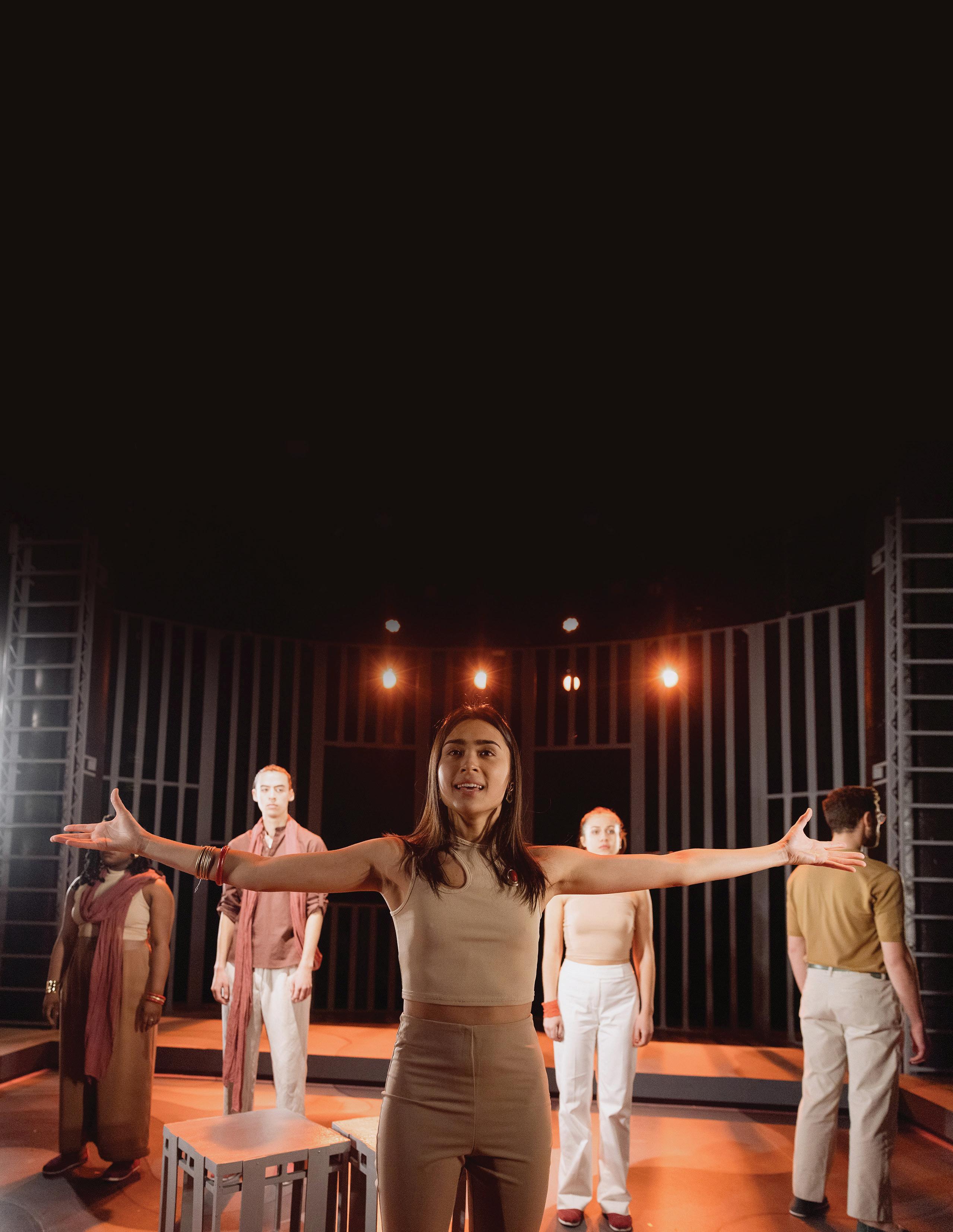
learners
expand
headlong risk taking, we bring concepts into existence and unleash ideas to build connections that shape the world.


Renowned as one of the best Bachelor of Arts programs in the country, Butler Theatre strives to push the boundaries of our art as we create innovative productions and instill in our graduates an entrepreneurial spirit that will drive them through their career in the everchanging art market. Led by a faculty of professionally active artists, we encourage rigorous study and collaborative practice so that students develop their individual voices.
•Highly regarded, professionally active faculty who are invested in students’ success
•A broad study of theatre to diversify students‘ skills as well as an in-depth study of a specialized interest
•Short-term, intensive Theatre study trips led by Theatre faculty to destinations around the globe
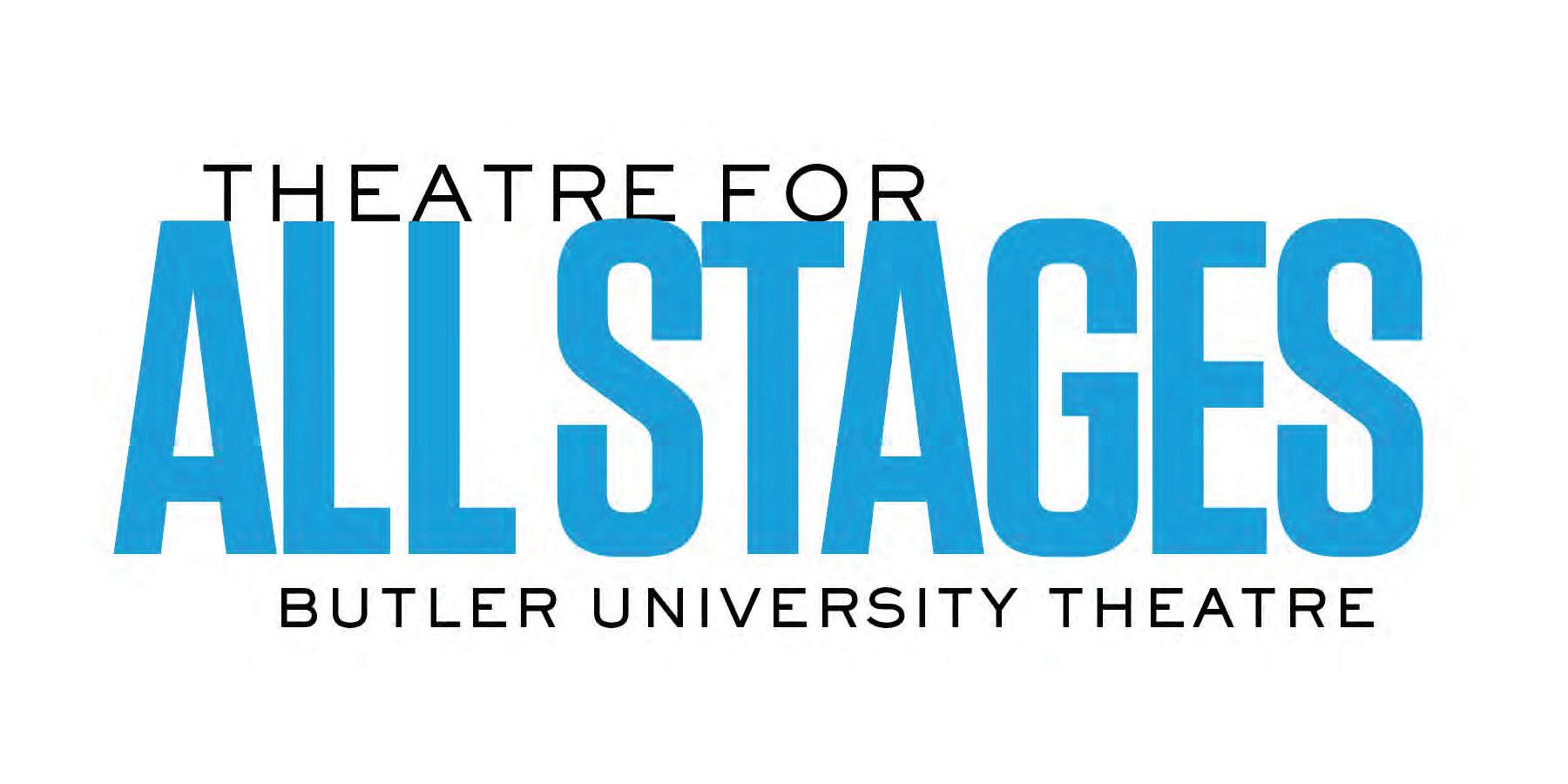

•Networking through our internships ad connections with the Indiana Repertory Theatre, the Phoenix Theatre, and the Indianapolis Shakespeare Company
•Innovative approach to productions - we create theatre of all types
•Butler University is a fully accredited institutional member of the National Association of Schools of Theatre
•B.A. in Theatre
•B.S. in Arts Administration Theatre (o ered by the Department of Arts Administration)
MINORS (for non-Theatre majors):
•Theatre
EMPHASES (for Theatre majors):
•Acting
•Directing
•Stage Management
•Music Theatre
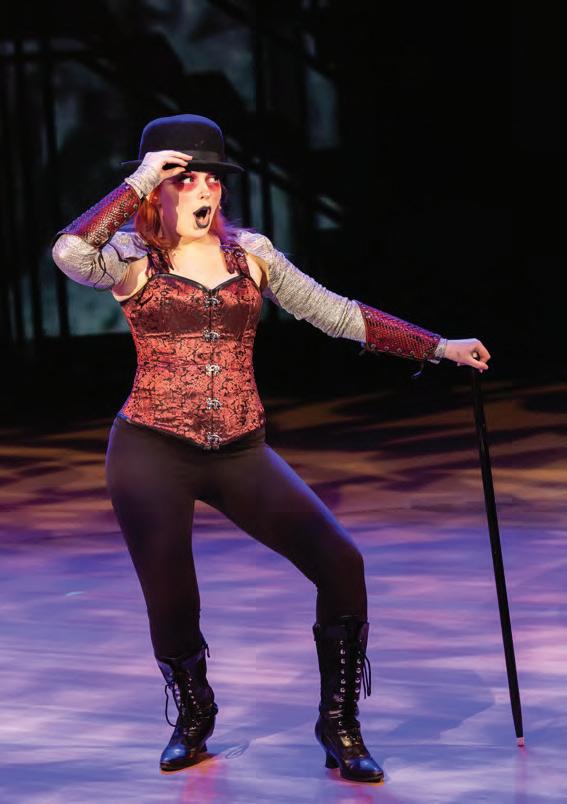
•Set & Lighting Design
•Costume Design


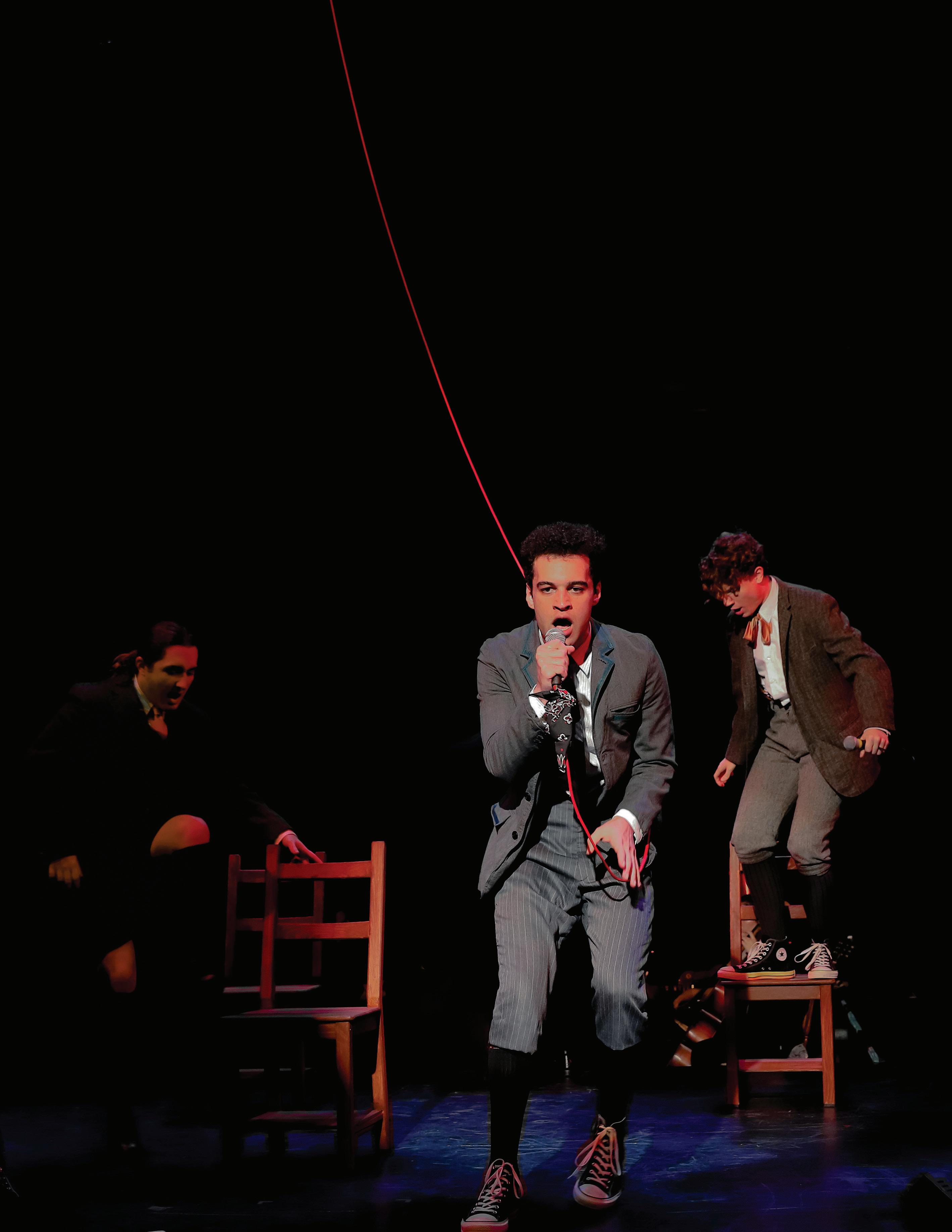


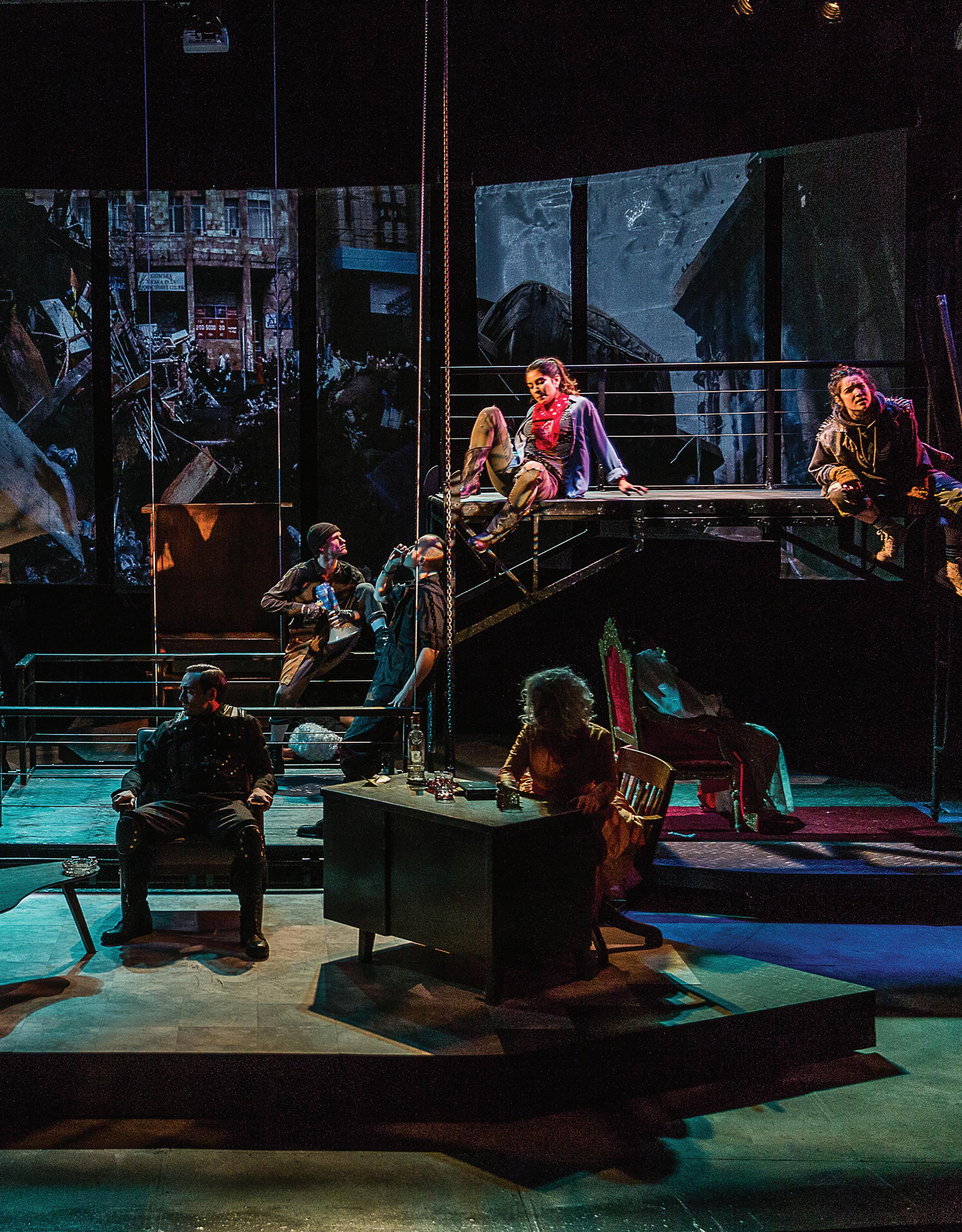
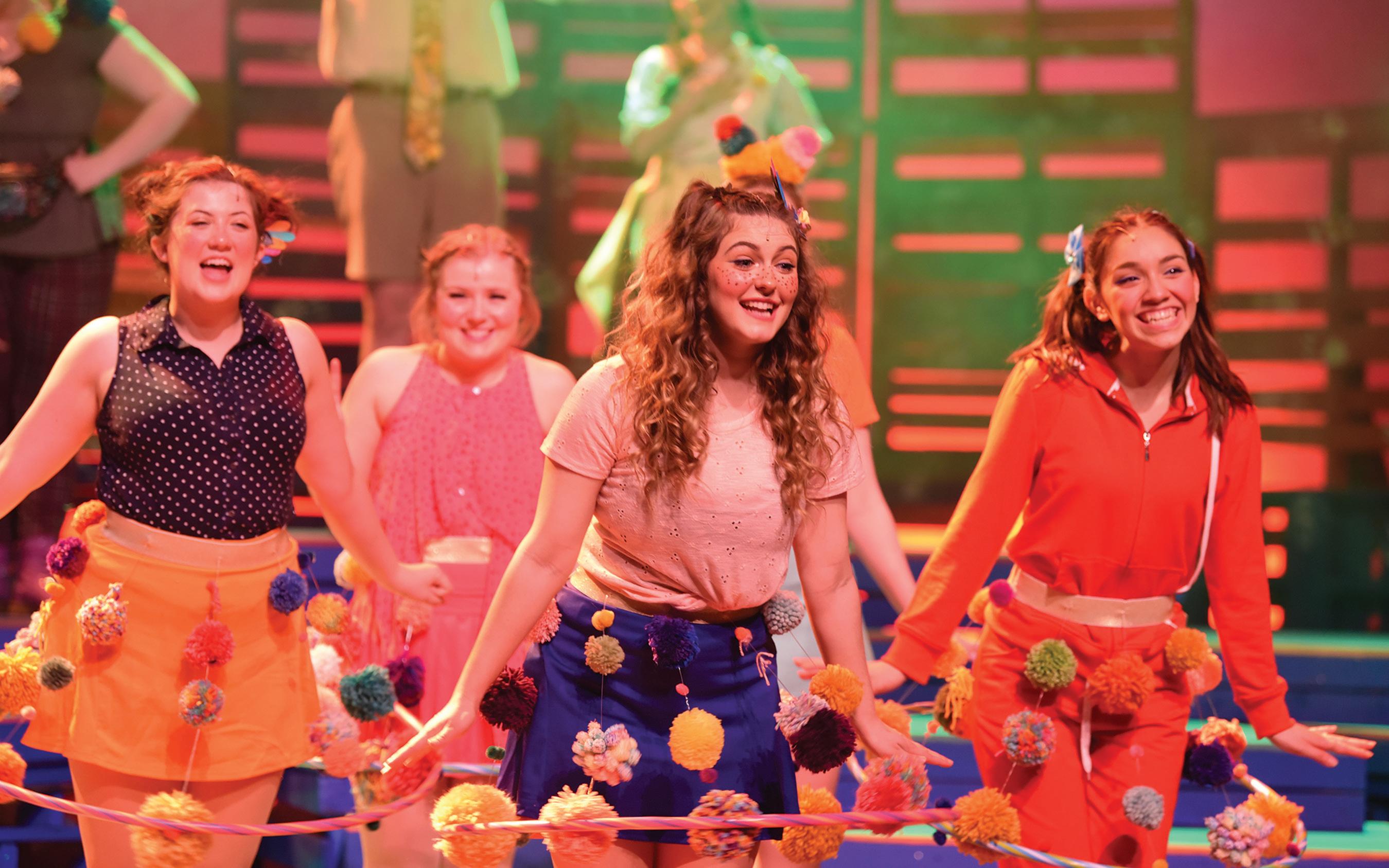
Maybe you wish your college recruiters could tell you just the answers to these two questions:

Will I be happy at
school
school?
Of course, they can’t. But if you plan your time with them and do the right research then you’ll get closer to those answers on your own. Before we share the best questions to ask your college recruiters, here are tips to keep in mind:
Put your questions in a note on your phone or write them down on a notecard. Use the method that works best for you.
There’s a lot happening during ITF. And there’s a lot happening in your personal life. Your prepared questions will let you shift gears quickly when it’s your turn with the college recruiters.
Your prepared questions show you’re interested and eager to find out more about the school. In fact, a lack of your participation in the conversation can go against you. The recruiter may think you’re just going through the motions!
That way, when you review your notes, you’ll be comparing “apples to apples.” Random questions won’t let you compare each recruiter’s answers.
They may share opportunities about their institution’s awards that you didn’t even know existed.
You can ask about financial aid, student life, the academic experience, etc.
It’s fine to ask if they attended the college and if they want to share anything about their own experience there. Beyond that, leave the personal questions off your list.
You want to ask thoughtful and pertinent questions. But trying to put the college recruiters on the spot is a bad idea. It’s important to keep in mind that college recruiters can and may report back any troublesome interactions they have with potential students.

• Ask the questions that will give you a full picture of life at that college.
1. What theatre degrees does your school offer?
2. Is theatre the major? Is musical theatre the major?
3. If you offer a BFA vs. BA what are the advantages of each? Why is the one you offer more useful?
4. What are the performance opportunities for undergrad students? Can I perform as a freshman? Is it ensemble-only? Leading roles?
5. How many plays vs. how many musicals does the college produce each year? What’s the typical production calendar look like? When are the shows?
6. Are there student productions? Does the school support independent productions? Will the school sell tickets? Is there performance space available for my production on campus?
7. Do my extra-curricular activities and hobbies influence my chance of being accepted into the theatre program?
8. Am I allowed to audition for professional works while still in school? If I get hired, can I pause my schooling and return after my contract?
1. How would you describe campus culture? What is student life like?
2. What can you tell me about on-campus living? What are the dorms like and how many are on campus? How many students to a dorm room?
3. Are there part-time work opportunities within the program? How might I earn money doing something relevant to theatre on campus or nearby in town?
4. What about off-campus living? What’s available to freshmen? What do most students do after freshman year?

1. What differentiates the college from others?
2. What upcoming changes to curriculum, planned on-campus construction, etc., will affect students, either positively or negatively?
3. What do students enjoy most about this school? And, as a follow-up, what do you hear that students dislike most about the school?
4. If I need to pause my education for a semester, can I come back without having to reapply?
5. When do I have to declare a major? Can I change majors later?
6. Are there study-abroad opportunities?
7. How would you describe the faculty overall?
UNIVERSITY OF THE ARTS
Ira Brind School of Theater Arts Philadelphia, Pennsylvania uarts.edu/academics/about-brind-school-of-theater-arts
BALL STATE UNIVERSITY
Department of Theatre and Dance Muncie, Indiana bsu.edu/theatredance
BOSTON CONSERVATORY AT BERKLEE
Theater Division Boston, Massachusetts bostonconservatory.berklee.edu
UNIVERSITY OF CINCINNATI
College–Conservatory of Music Cincinnati, Ohio ccm.uc.edu
CORNISH COLLEGE OF THE ARTS
Theater/Performance Production Depts. Seattle, Washington cornish.edu/theater
EMERSON COLLEGE
Department of Performing Arts Boston, Massachusetts emerson.edu
UNIVERSITY OF EVANSVILLE
Department of Theatre Evansville, Indiana theatre.evansville.edu
THE HARTT SCHOOL–HARTT THEATRE
University of Hartford West Hartford, Connecticut hartford.edu/hartt/theatre
ITHACA COLLEGE
Center for Theatre and Dance Ithaca, New York ithaca.edu/theatre
UNIVERSITY OF MIAMI
Department of Theatre Arts Coral Gables, Florida miami.edu/theatrearts
MONTCLAIR STATE UNIVERSITY
Department of Theatre & Dance Montclair, New Jersey montclair.edu/arts/theatre-and-dance
NORTHERN ILLINOIS UNIVERSITY
School of Theatre & Dance DeKalb, Illinois niu.edu/theatre
OHIO UNIVERSITY
School of Theater Athens, Ohio ohio.edu/theater
THE UNIVERSITY OF OKLAHOMA
Helmerich School of Drama Norman, Oklahoma ou.edu/finearts/drama
THE UNIVERSITY OF OKLAHOMA
Wietzenhoffer School of Musical Theatre Norman, Oklahoma musicaltheatre.ou.edu
OTTERBEIN UNIVERSITY
Department of Theatre & Dance Westerville, Ohio otterbein.edu/theatre-dance
POINT PARK UNIVERSITY
Theatre Department Pittsburgh, Pennsylvania www.pointpark.edu
College of Arts and Sciences Lawrence Township, New Jersey rider.edu/admissions/first-year/requirements-deadlines/auditions
ROOSEVELT UNIVERSITY
Chicago College of Performing Arts Chicago, Illinois roosevelt.edu/ccpa
School of Entertainment Arts Savannah, Georgia scad.edu/performingarts
SOUTHERN METHODIST UNIVERSITY
Meadows School of the Arts Dallas, Texas meadows.smu.edu
TEXAS CHRISTIAN UNIVERSITY
Department of Theatre Fort Worth, Texas theatre.tcu.edu
UNIVERSITY OF UTAH
Department of Theatre Salt Lake City, Utah theatre.utah.edu
VITERBO UNIVERSITY
Department of Theatre & Music Theatre LaCrosse, Wisconsin viterbo.edu/theatre
Sargent Conservatory of Theatre Arts Saint Louis, Missouri webster.edu/conservatory



AT RIDER UNIVERSITY, BRING YOUR PASSION FOR PERFORMANCE TO OUR INTIMATE AND ENGAGED COMMUNITY OF GIFTED STUDENTS AND FACULTY.
Develop your craft and build skills for an innovative, successful career in acting, arts management, dance, music education, musical theatre, theatre, voice and more.

For more information, visit:
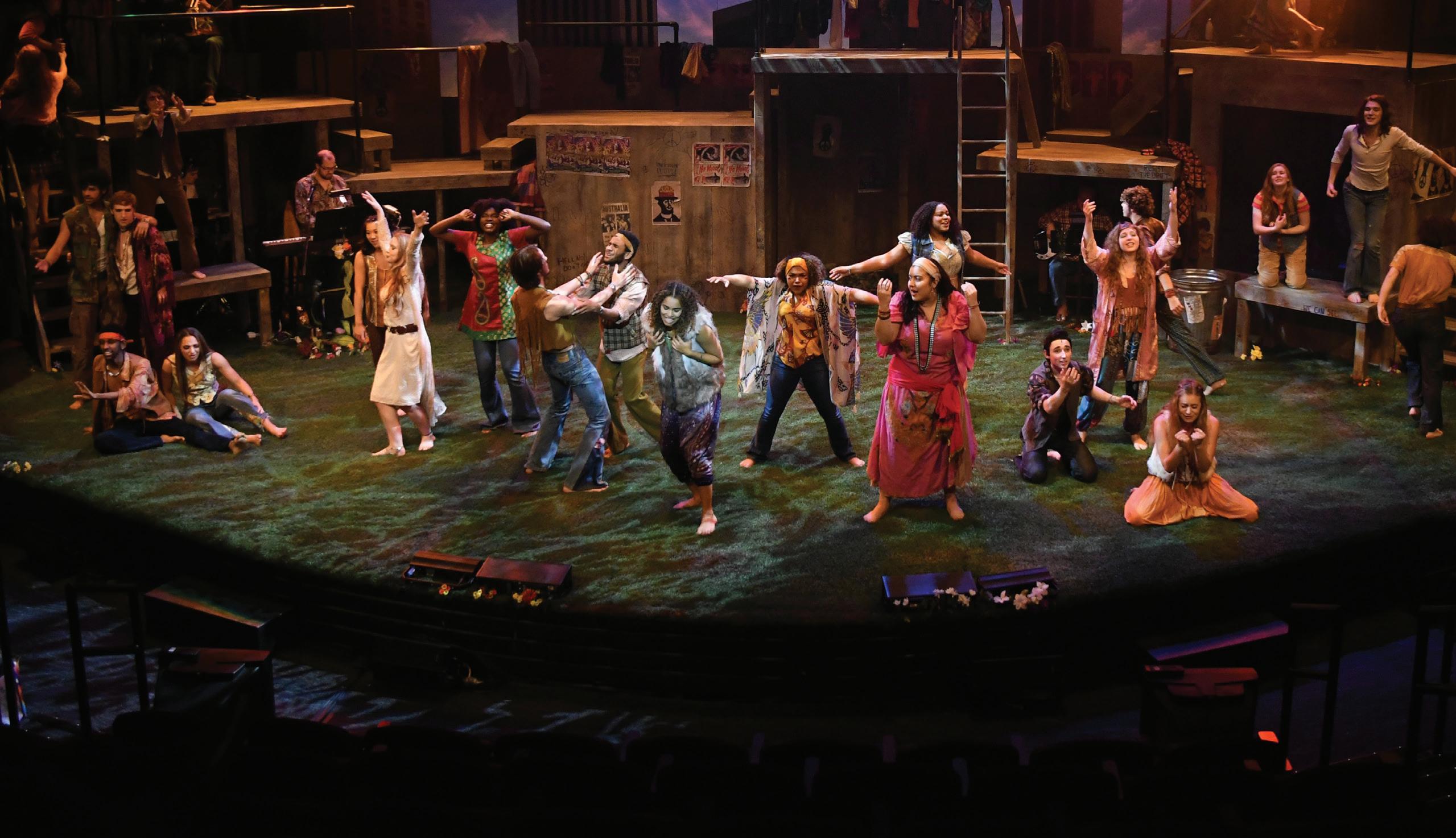
Succeed at your virtual audition by following these steps.
by Laura EnstallJust because we’ve been auditioning virtually for a while now doesn’t mean we’re used to it. And it doesn’t mean that it’s easier or more comfortable. AND we’re still adjusting to the format!
There are techniques you can use to help yourself shine in your virtual auditions. Let’s talk about some ways you can set yourself up for a successful virtual college audition.
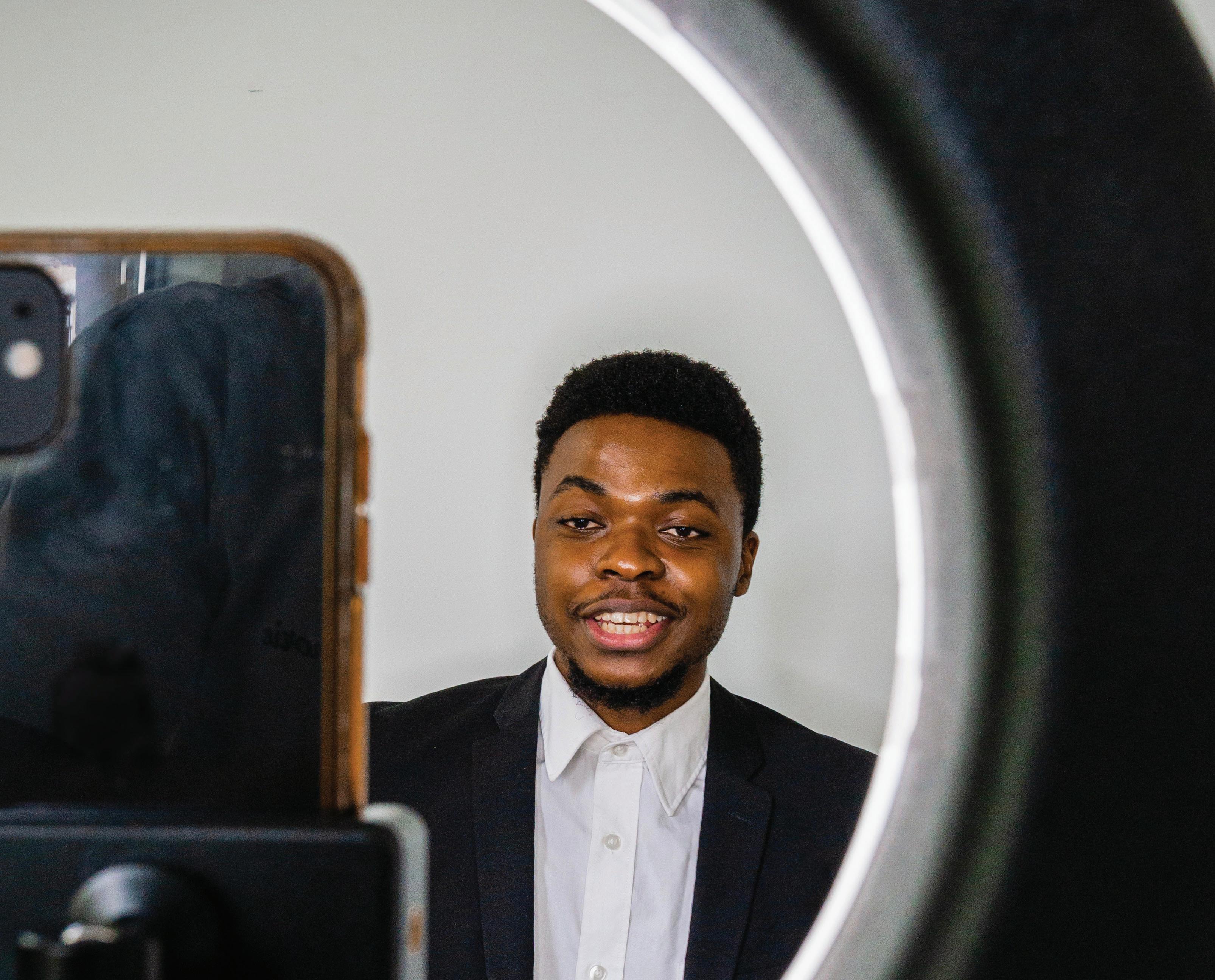
Dedicate a space for your auditions. It can even be your own bedroom. You want a peaceful environment for your college theatre auditions on a consistent basis. A room that you have unlimited access to and where you feel comfortable is perfect.
Set up a clean background that’s not distracting. While your background might not seem that important, it is! You want the viewer focused on YOU and not what’s behind you. A plain background is best.
A neutral-colored wall works well. The wall in the room you’re using for your college theatre auditions doesn’t have to be white, a color is great! I’ve had students look excellent on camera with vivid wall colors behind them.
You can use a cloth backdrop tacked to the wall or on a stand that can be purchased from Amazon. If you’re using a backdrop, it should be ironed or steamed so the wrinkles aren’t distracting. You can also purchase backdrop paper in a variety of sizes and colors. I like
this option because it’s quick, easy, and you don’t have to iron. Plus, you can tape or tack this paper to the wall if you don’t have a backdrop stand. Be careful not to damage the wall.
Quiet please! I realize it’s challenging with other people in the house to impose total silence on everyone. Remember, though, that any outside noises may be distracting to you and the auditors.
Turn off all notifications on your phone and computer. The email/text notification, even if it’s not making a sound could interrupt music you are streaming.
Be sure the camera you’re using is set to your eye level. You don’t want to appear to be looking down during your college theatre auditions. You’ll most likely be using the camera on a computer. So, when you’re standing in your audition space set the camera accurately. You can easily prop your computer up to the correct height with books or by placing your computer on a shelf.
It’s a good idea to use masking tape on the ground to show your marks for a three-quarter shot and a tight shot from your shoulders up. With marks, you won’t worry you’re standing in the wrong place and be able to focus on your audition.

You don’t need to purchase a lot of fancy equipment to have a successful audition. However, these items can give you an advantage.
Being properly lit for your auditions is necessary. You want to look your best. You’ll have many uses for a ring light as an actor. You’ll need to submit self-tapes and film prescreens, and a ring light can even be used for your online classes.
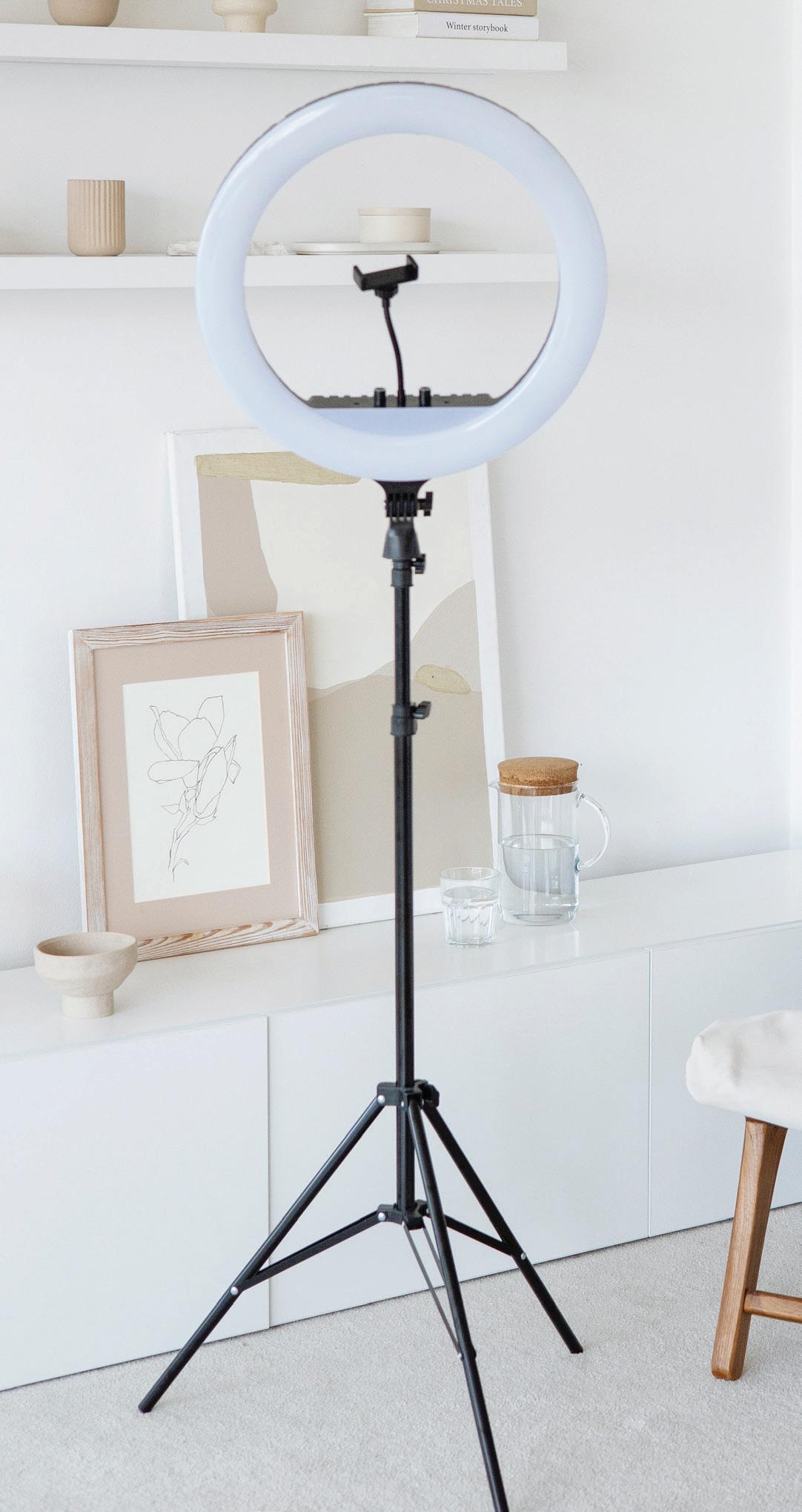
Test your internet well before you start the audition process. If your connection is unstable or it lags, see what you can do to fix the problems. Your auditions won’t be their best if there’s a delay in connectivity. You may need to get a signal booster.

A computer with a camera is a must for college theatre auditions. Some students have tried to audition from their phones, and it doesn’t always go well. While I can’t speak for every audition situation, sometimes the platforms on which you’ll be auditioning don’t work on a mobile device (at least this audition season).
If you’re auditioning for musical theatre programs, you’ll need a Bluetooth speaker on which to play your music. It won’t be loud enough if you play it on your phone and playing it on the same device on which you’re auditioning isn’t reliable.
An external microphone can improve the audio quality. You want to sound your best. Having an external mic will certainly help pickup your vocals. Computer mics generally aren’t high quality.

If you’re singing, then have your music cued up and your Bluetooth speaker ready. Have all your songs and monologue performances ready in case you’re asked to perform.
Do your research ahead of time. Research the schools and the people for whom you’re auditioning. What you discover will help you understand who they are and what they do. You’ll feel more prepared and therefore more confident.
It’s a good idea to have a couple of prepared questions in case they ask: “Do you have any questions?” Questions about their previous programs or plans for the coming year are good in most situations. Also, if they’ve said something that isn’t clear to you, calmly ask for clarification. Asking for clarification shows maturity and inquisitiveness to fully understand situations.
Being completely prepared for your audition, whether it’s virtual or in person, speaks volumes. Your preparation shows that you care, you’re organized, and you want this.
An unprepared student is easy to spot. A student who knows their material and is prepared stands out from the crowd and shines.

Try to breathe deeply and slowly. This deep breathing will help your body relax and your mind to focus on the audition ahead. Just like an athlete who creates a pregame routine which creates muscle memory, creating your own pre-audition routine will benefit you, too! Your routine will help you warm-up and be mentally prepared.

Know going into college theatre auditions process that the auditors want you to succeed. Whether you’re auditioning in person or virtually, they’re on your side! They’re not out to get you; they’re not sitting behind the camera snickering. They want you to do your best. The best fit for you may be that audition or maybe it won’t. Remember, each time you audition it’s an opportunity to perform.
Technology glitches happen and we all have to deal with them so remain calm. If you get kicked out of the waiting room or you receive the wrong link, it’s okay, you won’t miss your opportunity to audition. At this point, we all know that connectivity issues can happen (which is why it is important to do your best to have stable Internet), these things are beyond our control. Show up and do your best. Try not to let the uncontrollable factors throw you. I had a student who had an audition for an acting program and was in the waiting room and then was sent the wrong link for her actual audition, she finally made it to the right room and when she got there everyone was completely understanding.
Content written by LAURA ENSTALL who creates confident, prepared actors. She is the owner and founder of Audition Well and is a well-respected St. Louis-based College Audition Coach. She specializes in college audition prep, acting and acting-the-song training for high school students in the United States and internationally. She is a CAP Certified Teacher with College Audition Project which means Audition Well students enjoy access to exclusive auditions. Laura is a proud member of AEA and an adjunct theatre professor for Lindenwood University and St. Charles Community College. Because she believes in giving back to the theatre community, she regularly shares her expertise, audition tips and other valuable, free content on Instagram, so be sure to follow @auditionwell
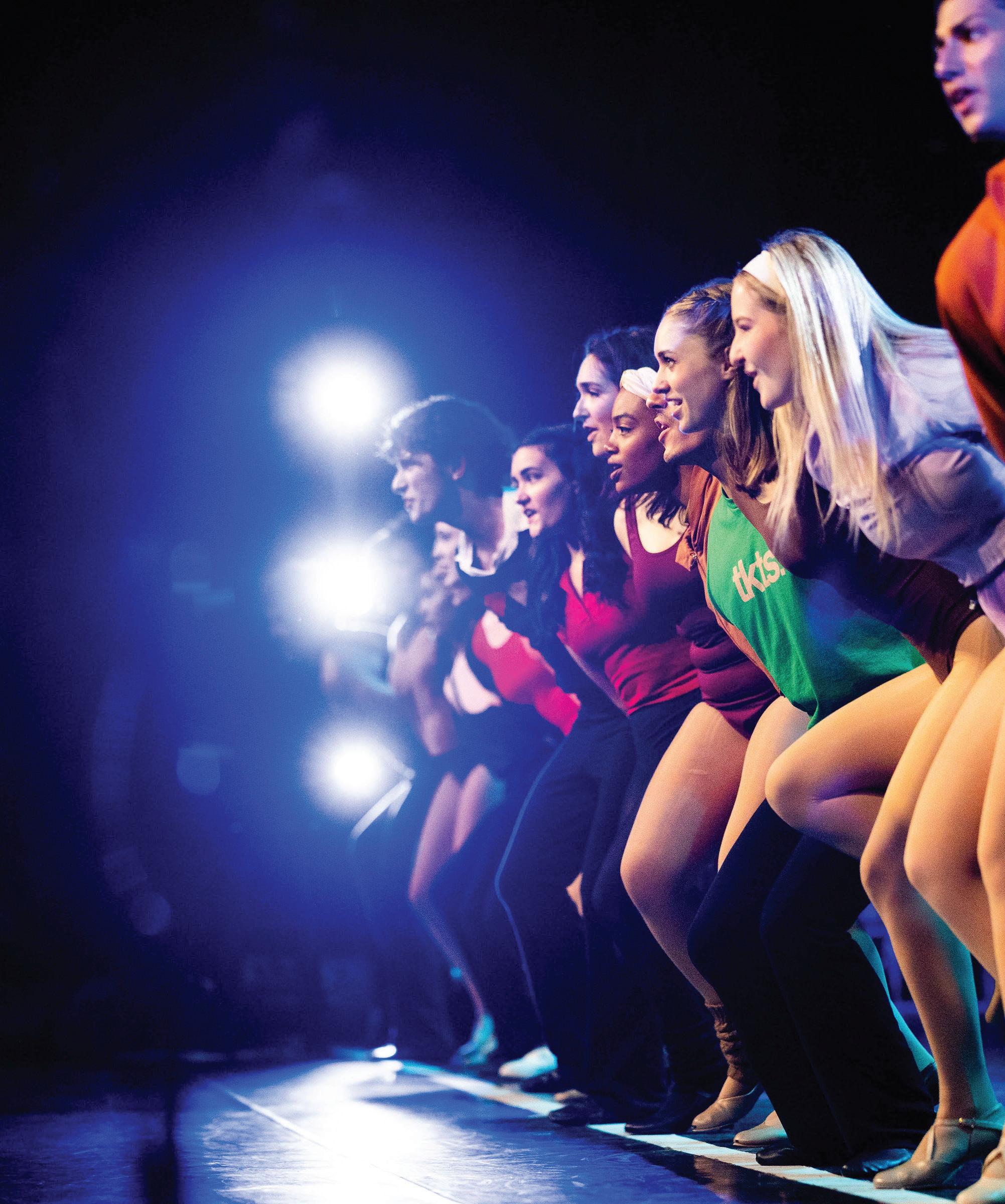
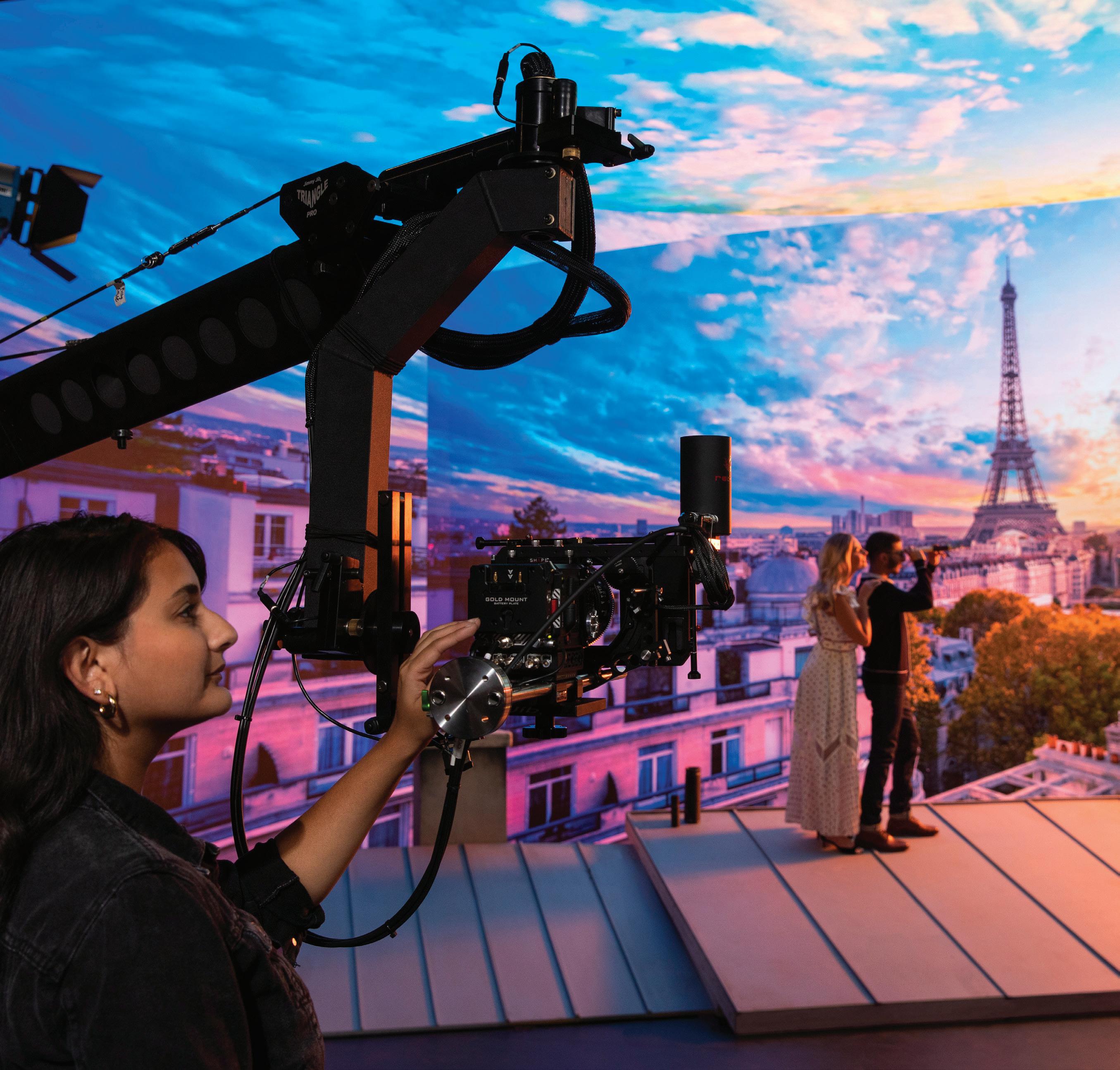

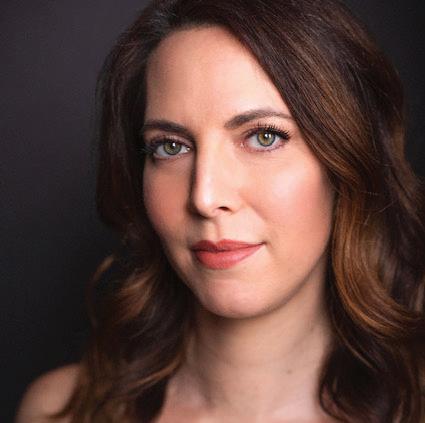
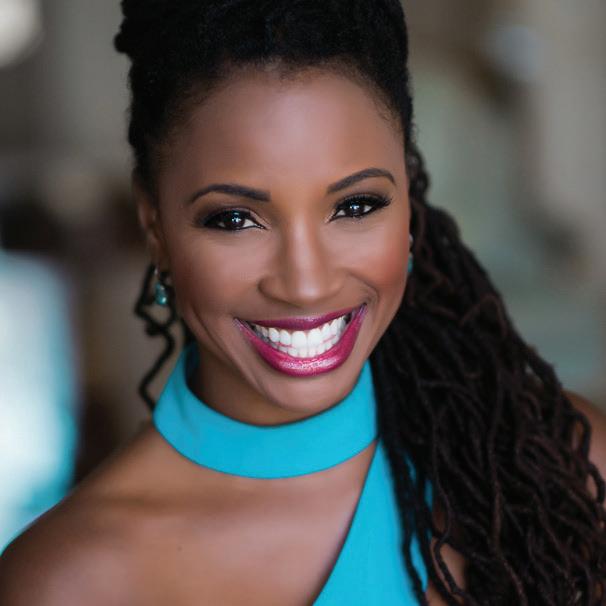




Make the most of every tour in person or virtually.
by Laura EnstallVisiting a college campus is the ideal way to get a solid feel for the school, the town, the programs, and more. While COVID protocols are still shifting it’s important to be sure you understand tour details for wherever you want to visit.
Get all the details ahead of time so you know how to be prepared and to get the most out of your tour. Here are tips to maximize your tour experience:

Contact the theatre department to set up a theatre tour and a meeting with the faculty. If you want to major in theatre, check out the theatre facilities and meet the faculty, if possible. Your admissions officer may set this up for you or you might need to do it yourself, depending on the school.
Have questions prepared to ask the faculty. You want to be prepared with questions about their theatre program specifically. Here are some questions you can ask:
1. How many students do you accept into your program? Be specific about which program(s) you’re interested in whether it’s acting, musical theatre, tech theatre, or theatre education.
2. What performance opportunities are there for freshmen?
3. How are students taught about the business of theatre?
4. How does your program help students who are graduating find work in the field?

5. Are there opportunities to perform / audition for summer work?
For a full list of questions and my free college-tour template click here.
Bring along a notebook or create a note in your phone and keep track of what you like and dislike about every school. This is a very simple, yet effective way to stay organized throughout your college process. If you’re auditioning for theatre programs, you most likely will be visiting and auditioning for many schools. Staying organized is essential. Trust me, it’ll hard to remember details about each program six months after your visit.
Bring your headshot and resume just in case you have a chance to share it! When you meet with the theatre faculty, they might ask for your headshot and resume. If you have one, bring it along. If you don’t have one, it’s okay but you can easily put together a resume. Here’s a template
Ask if you can audit a class (sit in). You’ll need to set this up ahead of time, but many schools will allow you to sit in classes in the theatre department. This is a firsthand way to observe the faculty’s teaching style and see how the students work with the faculty. You can also try to visit the campus during the school year and see a performance. This is a great way to get to know the theatre program.
If you can’t visit the campus in person, for whatever reasons, here are ways to maximize your virtual campus experience:


Many, if not all universities are now offering virtual tours of their campuses. Spend time doing the virtual tour of the campus. Explore the school’s website thoroughly and see what it has to offer. Take as much time as necessary and dig deep.
Find the social media handles (Instagram/Facebook) for the theatre department and the university. Look for additional info there. Many times students will do takeovers, Q&As or “a day in the life” to give you a better feel for the student experience.
Ask to set up a virtual meeting with the theatre department to get more information and ask questions. During this meeting, you can also ask if you can speak to current students (or be connected with current students) so you can ask them questions about the school and program.

Connect with students online or over Zoom. Ask the theatre department to put you in touch with students so you can get a feel for the program from the student’s perspective. They may even give you their own personal tour!
If you’re unfamiliar with the city or town where the campus is located, do some online exploring! Google what’s nearby. Search for the nearest grocery store, distance from the airport (if you’d be flying to and from school), local restaurants. Check how far hotels are from campus for family and friends’ visits. Get to know the surrounding area.
Some of the campuses are open but aren’t giving tours. In this case, walk the campus on your own self-guided tour. You may not be able to go into buildings but you could at least drive around and walk around outside to get a feel for the campus.
As we all have learned, situations will continue to change in this post-COVID world of ours. Campus restrictions will change so be sure to check with the university and the local restrictions before you plan a trip.

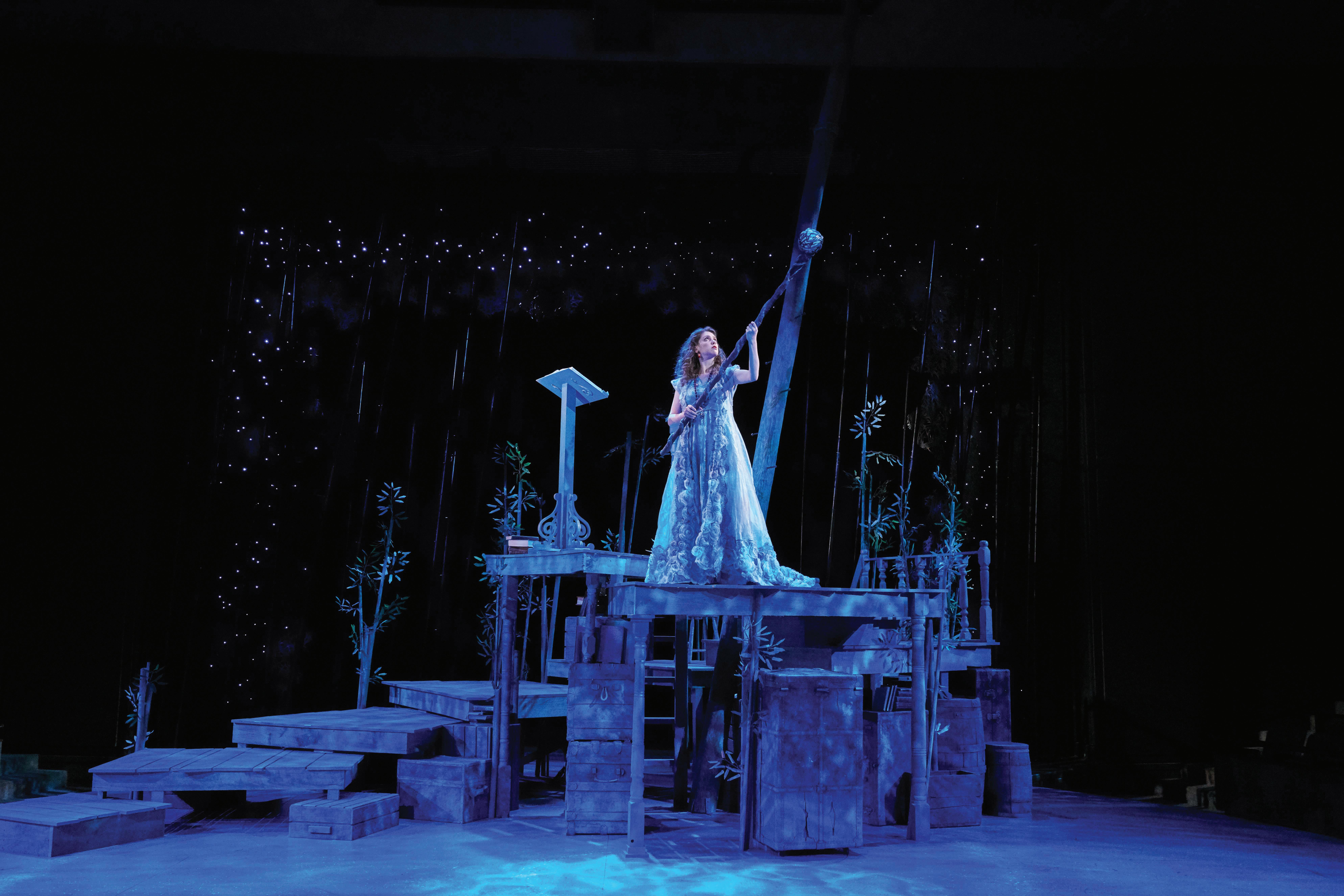
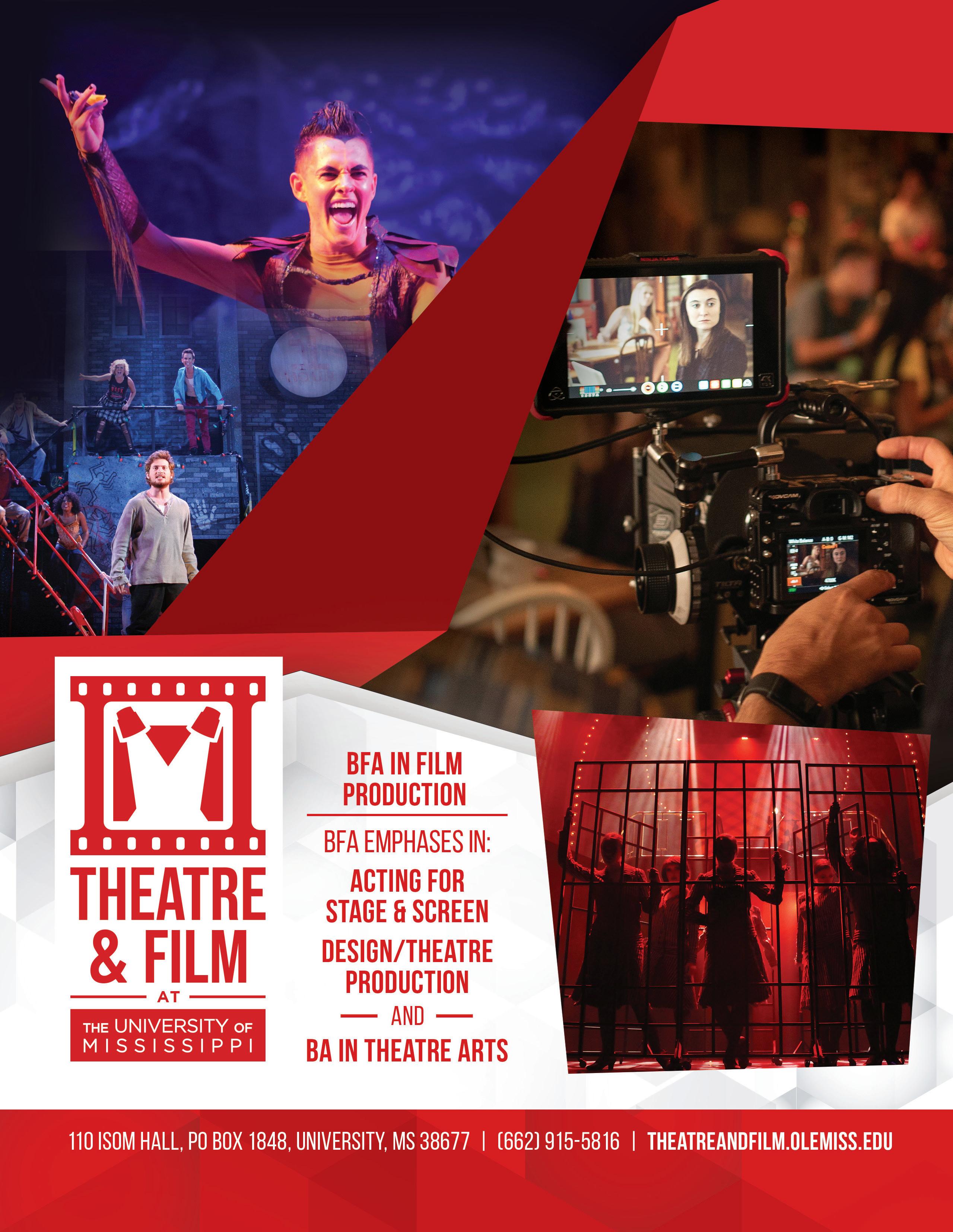
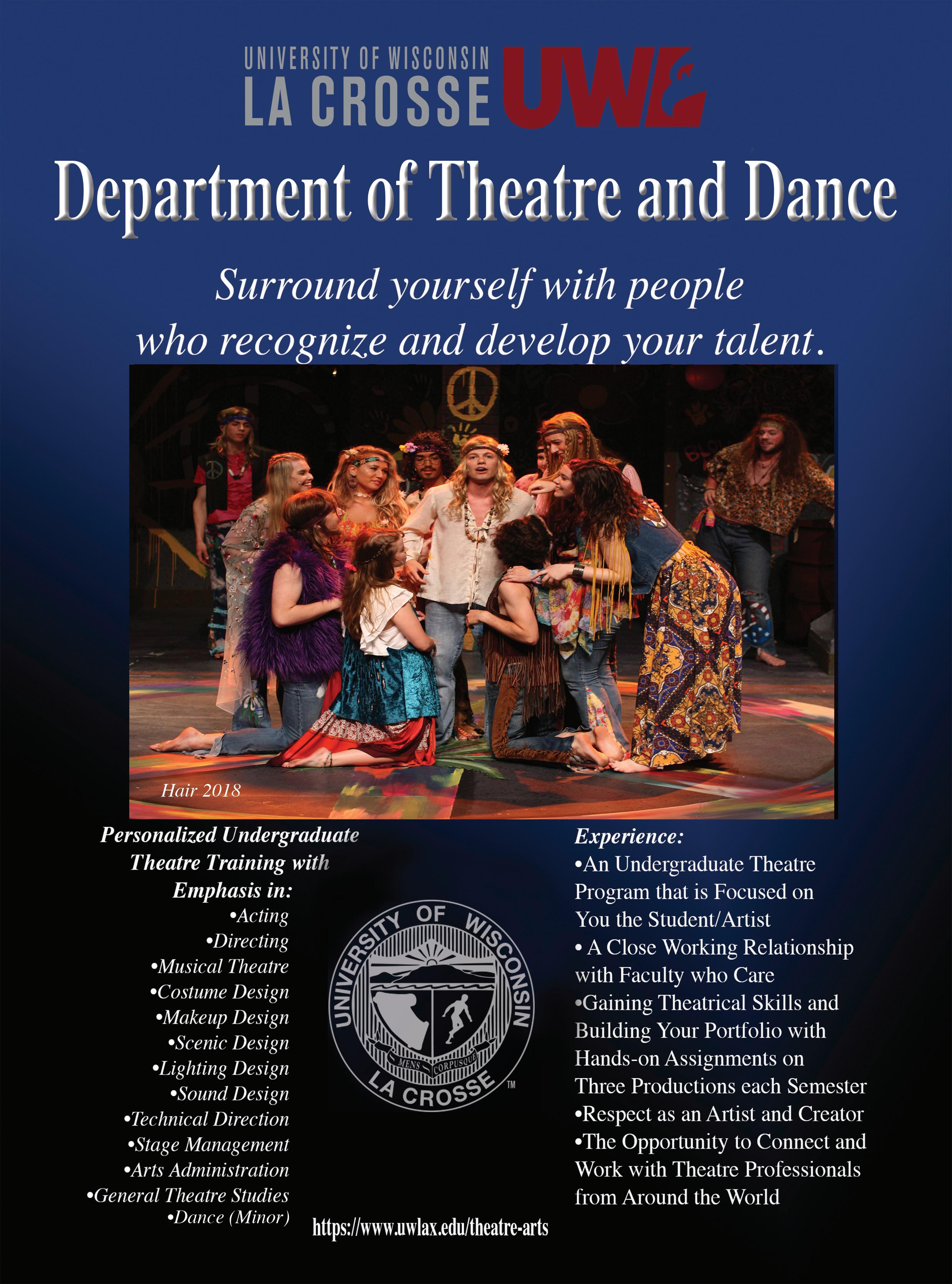
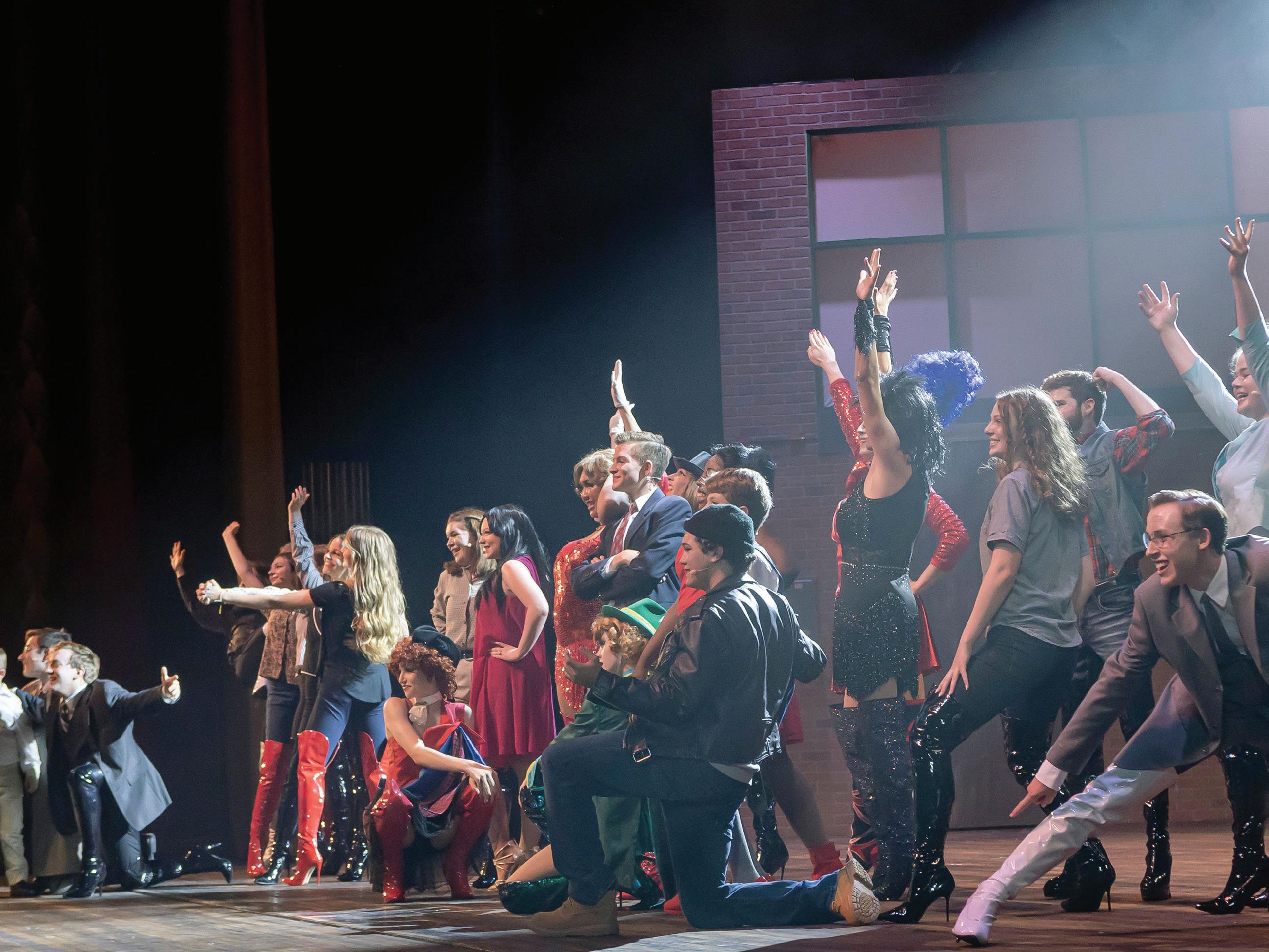 Kinky Boots I Lincoln Southwest High School I Troupe 6547 I Lincoln, NE I Director: Bob Henrichs
Kinky Boots I Lincoln Southwest High School I Troupe 6547 I Lincoln, NE I Director: Bob Henrichs